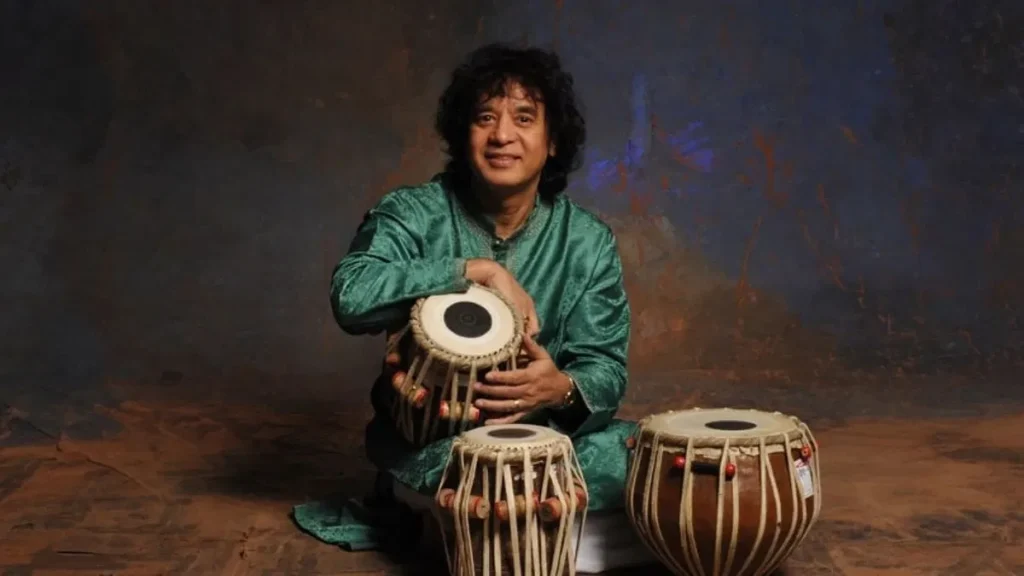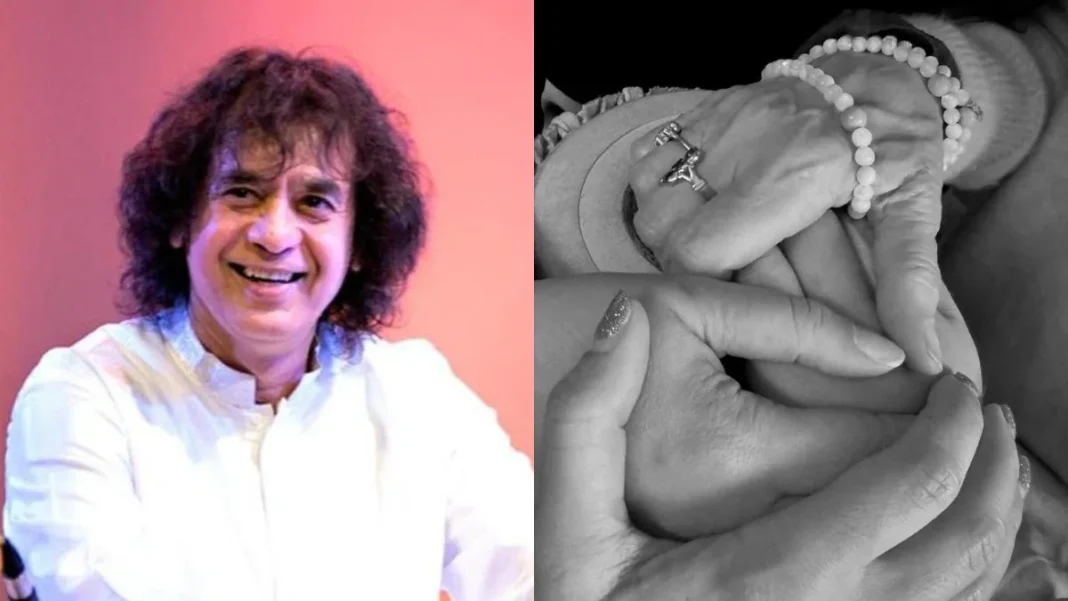December 23, 2024: The world of Indian classical music lost one of its most revered figures with the passing of the legendary tabla maestro, Zakir Hussain, on December 15, 2024, in San Francisco at the age of 73. His death has left fans, musicians, and admirers around the globe mourning the loss of a true virtuoso, whose contributions to music transcended boundaries and enriched the world.
Hussain’s family shared an emotional tribute on his official Instagram account, marking the first post since his passing. The heartfelt post featured a black-and-white photograph of Zakir holding hands with his wife, Antonia Minnecola, and daughters, Anisa and Isabella Qureshi. The accompanying caption, “Always together in love,” encapsulated the deep bond the family shared, a reminder of the love and unity that defined Hussain’s life both personally and professionally. The post resonated deeply with fans, who flooded the comments section with tributes to the tabla maestro. One user wrote, “Ustad ji, your legacy will continue to live on for generations!” while another commented, “Rest in peace master, your teachings and rhythms will guide us forever.”
Zakir Hussain’s passing was due to complications from idiopathic pulmonary fibrosis (IPF), a rare lung disease that causes progressive scarring of the lungs, making breathing increasingly difficult. His death marks the end of an era, but his legacy continues through the music and rhythms that he created over a remarkable career.
Born into a family with a rich musical heritage, Zakir was the son of the legendary tabla player Alla Rakha, who was renowned for his work with Ravi Shankar and his contributions to Indian classical music. Zakir Hussain carried forward that legacy with great distinction, not just as a master of the tabla, but as a composer and a global ambassador for Indian music. His unique ability to blend traditional Indian rhythms with global influences allowed him to reach audiences worldwide, making him one of the most respected and influential musicians of his generation.

His music was a bridge between cultures, as he worked with artists from various genres, including jazz, world music, and Western classical music. His collaborations with musicians like John McLaughlin, George Harrison, and the Grateful Dead, among others, were revolutionary, introducing Indian classical music to a broader, more diverse audience.
Hussain’s final rites were performed at a San Francisco cemetery, where family, friends, and fellow musicians gathered to pay their respects. While he may no longer be physically present, his rhythms will forever resonate in the hearts of those who were touched by his art. Zakir Hussain’s music, his mastery of the tabla, and his dedication to his craft have left an indelible mark on the world, ensuring that his legacy will continue to inspire future generations.

